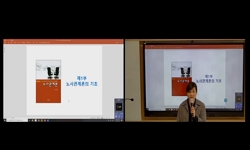이 논문은 공동사용자 개념을 토대로 진행된 백화점면세점판매서비스노동조합의 단체교섭의 성과와 한계를 평가하고, 향후 보다 진전된 산별교섭을 추진하기 위한 정책 과제를 살펴보는 ...
http://chineseinput.net/에서 pinyin(병음)방식으로 중국어를 변환할 수 있습니다.
변환된 중국어를 복사하여 사용하시면 됩니다.
- 中文 을 입력하시려면 zhongwen을 입력하시고 space를누르시면됩니다.
- 北京 을 입력하시려면 beijing을 입력하시고 space를 누르시면 됩니다.
https://www.riss.kr/link?id=A109121811
- 저자
- 발행기관
- 학술지명
- 권호사항
-
발행연도
2024
-
작성언어
Korean
- 주제어
-
KDC
336
-
등재정보
KCI등재
-
자료형태
학술저널
-
수록면
5-42(38쪽)
- DOI식별코드
- 제공처
- 소장기관
-
0
상세조회 -
0
다운로드
부가정보
국문 초록 (Abstract)
이 논문은 공동사용자 개념을 토대로 진행된 백화점면세점판매서비스노동조합의 단체교섭의 성과와 한계를 평가하고, 향후 보다 진전된 산별교섭을 추진하기 위한 정책 과제를 살펴보는 데 그 목적이 있다. 백화점면세점판매서비스노동조합 조합원이 근무하는 곳은 자신을 고용한 브랜드와 하청업체의 사업장이 아니라 백화점·면세점 사업주가 통제하는 매장이다. 일반적인 근로조건·환경은 조합원을 고용한 사용자인 브랜드·하청업체가 결정한다. 반면에 조합원의 휴일·휴식과 위생·편의시설 사용은 백화점·면세점이 지배력을 행사한다. 요컨대 정상적인 근로계약과 달리 사용자가 공동으로 존재한다. 이 문제에 대응하기 위해 2023년 백화점면세점판매서비스노동조합은 조합원을 고용한 사용자인 브랜드·하청업체와 조합원이 일하는 매장을 통제하는 백화점·면세점 사업주를 상대로 산업별 교섭을 시도했지만 제대로 성사되지 못했다. 그러나 노조는 브랜드·하청업체와의 협약서를 통해 백화점·면세점의 영업시간 변경과 위생·편의시설 개선은 백화점·면세점 사업주의 권한이라는 점을 확인하는 성과를 거뒀다. 이 논문은 2023년 백화점면세점판매서비스노동조합 단체교섭의 성과와 한계에 대한 평가를 토대로 공동사용자 개념을 활용하여 백화점·면세점 노동시장 이중구조 개선을 목표로 하는 산업별 단체교섭의 필요성과 구체적인 정책 과제를 제시한다.
다국어 초록 (Multilingual Abstract)
This paper aims to evaluate the achievements and limitations of collective bargaining by the Department Store and Duty Free Sales and Service Workers’ Union, based on the concept of joint employers. It also seeks to identify policy challenges for fu...
This paper aims to evaluate the achievements and limitations of collective bargaining by the Department Store and Duty Free Sales and Service Workers’ Union, based on the concept of joint employers. It also seeks to identify policy challenges for further advancing collective bargaining in the future. Union members work in stores managed by department store and duty-free shop owners, not within the premises of the brands or subcontractors that employ them. The general working conditions and environment are determined by the employers of the brands or subcontractors. However, department store and duty-free shop owners oversee holidays, breaks, hygiene, and access to amenities for the union members. In short, unlike a normal labor contract, there are multiple employers for the union members in reality. To address this issue, in 2023, the Department Store and Duty Free Sales and Service Workers’ Union sought to conduct industrial collective bargaining and negotiations, not only with the brands and subcontractors but also with the department store owners who oversee the stores where the members work. However, the union only secured agreements with the brands and subcontractors, which confirmed that department store and duty-free shop owners have the authority to change operating hours and improve hygiene and amenities. By evaluating the successes and shortcomings of the collective bargaining by the Department Store and Duty Free Sales and Service Workers’ Union in 2023, this paper emphasizes the need for industrial collective bargaining and proposes policy measures aimed at addressing the dual structure of the labor market in department stores and duty-free shops, guided by the concept of joint employers.
동일학술지(권/호) 다른 논문
-
팬데믹이 간호노동 수행과정에서 우울감에 영향을 미치는 요인 분석 - 코로나19 업무 경험, 직무소진, 의료기관 대응 인식 간의 효과를 중심으로
- 고려대학교 노동문제연구소
- 한기덕
- 2024
- KCI등재
-
플랫폼노동으로의 전환과 프레카리아트화 - 근거이론 적용
- 고려대학교 노동문제연구소
- 안영규
- 2024
- KCI등재
-
- 고려대학교 노동문제연구소
- 편집부(편집자)
- 2024
- KCI등재
-
근로기준법상 사용자의 식별 - 대상판결: 서울고등법원 2023. 12. 21. 선고 2022누56601 판결 -
- 고려대학교 노동문제연구소
- 권오성(Kwon Oh-Seong)
- 2024
- KCI등재





 DBpia
DBpia




